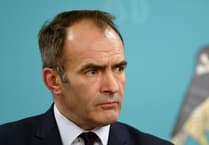Tynwald will be asked next month to approve changes to public sector pension schemes after a valuation showed the future cost of providing pensions has fallen, triggering the cost-sharing mechanism set out in law.
The Public Sector Pensions Authority (PSPA) says the saving identified in its 2022 valuation, the first carried out under the Public Sector (Cost Sharing) Scheme 2020, must be shared between scheme members and employers. Cost sharing was introduced to ensure any increase or decrease in pension costs, expressed as a percentage of pay, is split rather than falling solely on taxpayers, providing a more predictable and transparent approach to long-term pension management.
The PSPA says reforms since 2012 have made schemes more affordable, with employees contributing more while receiving a lower pension. Chair Jerry Carter said he was pleased the valuation confirmed that real-terms costs are now falling, adding that if costs had increased, employees would have paid more and seen further reductions in benefits.
Following consultation with Treasury and unions, the PSPA has prepared amending legislation that would increase accrual rates across schemes so future pensions build up more quickly; reduce contributions for members of the Teachers’ Pension Scheme 2025 by one per cent; and allow those teachers to exchange part of their pension for a lump sum at a higher rate, bringing the scheme closer into line with others. If approved, the higher accrual rates will be backdated to 1 April 2024 for service from that date, with contribution and commutation changes applying from 1 April 2026.
The PSPA stresses that cost sharing only addresses future pension costs and does not deal with the long-standing funding deficit caused by the schemes being unfunded. That deficit continues to be met from government revenue and is expected to fall over time as older legacy pensions are replaced by members of the reformed schemes.
Under the mechanism, 75 per cent of any change in costs is allocated to scheme members and 25 per cent to employers, with the employer share used to reduce contributions. The system was developed after discussions between the PSPA, the scheme actuary, pension specialists, staff representatives and Treasury before being approved by Tynwald in 2020.
Consultation on how the saving should be shared involved UK pension specialists representing unions, the Trades Union Council, the Police Federation, Treasury and the Council of Ministers, alongside public sector workers contributing to the unified, teachers’, judicial and police schemes.
Scheme-specific changes include increased accrual rates in the Unified Scheme 2011; higher accrual rates across police and judicial schemes; and, for teachers, increased accrual rates for all members, a one per cent contribution reduction and a rise in the cash commutation factor from £12:£1 to £16:£1.
The total cost of the proposals is estimated at £3.3m a year. The next cost-sharing valuation is due in 2028. Mr Carter said the Treasury and PSPA would now review the process to ensure pensions remain sustainable and affordable for the future.



.jpeg?width=209&height=140&crop=209:145,smart&quality=75)
